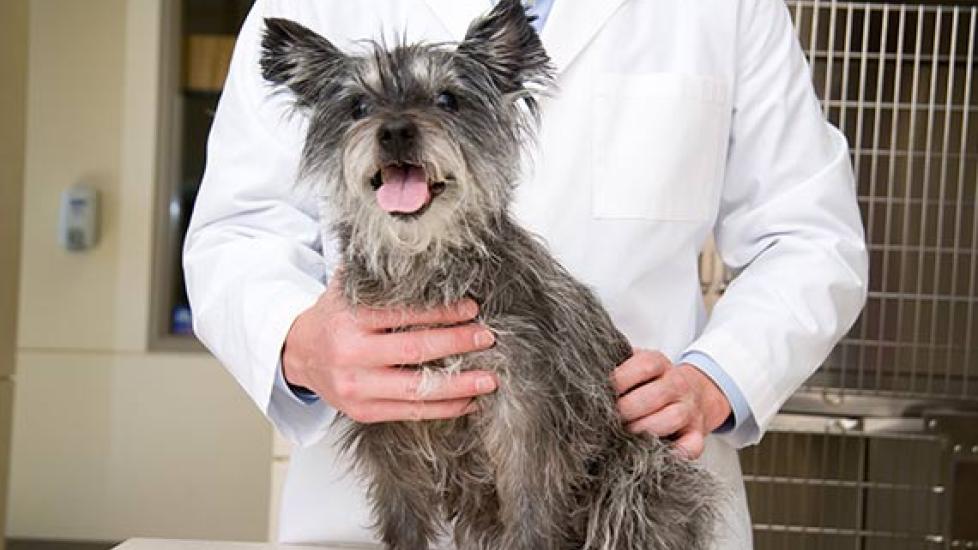When to Get a Second Opinion from a Veterinarian
A funny thing happens when word gets out that you’re a veterinarian or veterinary technician: You become the neighborhood go-to person for medical advice.
Neighbors will knock on your door with their dog in tow, point to a wound, and ask “What is this?” They might stop you in the grocery store, whip out their phone, and ask you to tell them why their cat is limping based a four second video. Your neighbor’s co-worker’s cousin will find you on social media because, well, she heard you can help her pet.
What I’ve realized is that more times than not, what these loving pet parents are looking for is a trusted second opinion about how to help their sick or injured pet. Though I don’t encourage middle-of-the-night visits to my or anyone else’s home, I do think that medical second opinions can be very important.
Here are some tips on when to seek a second opinion and how you can help the consulting veterinarian to provide you with the most educated and accurate treatment advice.
When To Seek A Second Opinion
Poor prognosis: If your pet has been diagnosed with a serious and life-threatening illness and the prognosis for recovery is poor, seeking a second medical opinion is a very good idea. A different veterinarian, perhaps a specialist, may be able to offer different treatment options that will provide a different or better prognosis.
Complicated or expensive treatment: Some conditions, such as cancer or orthopedic injuries or abnormalities, require complicated and expensive treatment. Consulting a different veterinarian, perhaps a specialist in this area or one who incorporates holistic treatment options, may be able to suggest a more targeted or less complicated and expensive treatment plan.
Unfamiliar vet: There are a lot of reasons you may be meeting a veterinarian for the first time. Perhaps you just moved to a new area and haven’t had a chance to establish a relationship with a new veterinarian yet. Perhaps your trusted veterinarian has recently retired. Or maybe you just haven’t taken your pet to a veterinarian in a long time, only to have the wind knocked out of you with an unexpected diagnosis and/or prognosis. Consulting with a second veterinarian may give you some comfort and help you to establish trust with your new veterinarian.
Your gut says differently: You know your pet better than anyone. If your gut says that your pet is sick but the veterinarian can’t find anything wrong after examining your pet and running some preliminary tests, then seeking a second veterinary opinion may be a good idea.
The opposite, however, is rarely true. If your veterinarian says your pet is sick, it most likely is. You may still want to seek a second opinion to confirm the diagnosis or to discuss alternative treatment options, but that won’t change the original diagnosis.
When NOT to Seek a Second Opinion
If your pet is experiencing a medical emergency, this is not the time to refuse treatment and seek a second opinion. Medical emergencies are life threatening and the sooner treatment can be started the better the prognosis will be. In these cases, please trust the veterinarian, follow his or her advice, and get your pet the treatment that he or she needs. Once your pet is stabilized and healthy enough to come home, then you can think about consulting a different veterinarian about long-term care.
How to Prepare for a Second Opinion
When seeking a second veterinary medical opinion, there is no need to hide this from your regular veterinarian. Be upfront with your veterinarian; nearly all veterinarians will understand and will encourage you to consult a peer. In fact, I’ve never met a veterinarian who felt offended when a client wanted a second opinion.
When you call to schedule an appointment for a second opinion, ask what medical records they would like you to bring with you to the appointment. You can get copies of these records from your regular veterinarian.
At a minimum, try to bring any current test results that are relevant to your pet’s medical condition, such as blood work or x-rays. Also, it is a good idea to write down the symptoms you’ve noted in your pet, such as when the symptoms started and any other information that may seem pertinent. Having these notes with you will help you to give the consulting veterinarian as much information as possible.
